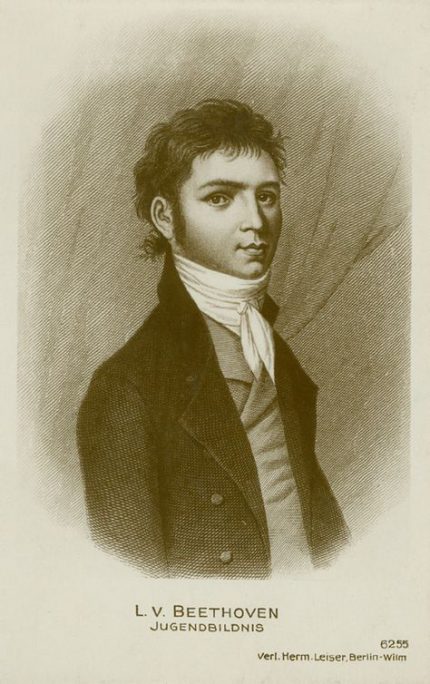Chicago Ensemble at its best in fiery, youthful Beethoven

The Chicago Ensemble is best known for its consistent advocacy of American music and lesser known composers. So, of course, the group opened its 42nd season with an evening of piano trios by Haydn, Mozart and Beethoven.
Not to worry. While the group’s first program was firmly anchored on the top Austro-German triumvirate, there is ample offbeat repertoire to come. The Chicago Ensemble will present four “Discover America” concerts spotlighting music by living composers—the first later this month—and rarities by Arthur Bliss, Robert Muczynski, and Walter Piston will be featured on the main series later this season.
Music of Beethoven has been a major part of Gerald Rizzer’s ensemble from its debut, and the young composer’s Piano Trio in C minor delivered the highlight of Tuesday night’s concert at Fourth Presbyterian Church.
Did any great composer ever announce themselves in an Opus 1 more spectacularly than Beethoven? The first two trios of this set are cast in the galant and gracious style of Haydn, his teacher (for a brief time). Yet in the Trio in C minor, the 25-year-old Beethoven blows up the form’s courtly politesse, with a musical tempest erupting in the opening movement, stark contrasts of thematic material throughout and a piano part of dizzying virtuosity.
Pianist Rizzer, violinist Stephen Boe and cellist Andrew Snow were fully engaged and simpatico partners in this youthful Beethoven work. The storm-tossed opening Allegro was played with unbridled fire and conviction, the players giving aggressive thrust to the jabbing main theme, while fluently segueing into the lyrical second subject.
While the motif of the Andante felt fractionally rushed—an issue with slow movements throughout this program—the ensuing variations underlined the subtly varied expression, by turns piquant, elegiac and ardent. The quirky off-the-beat accents of the Menuetto show the composer brashly upending the form’s powdered-wig gallanteries.
The Chicago Ensemble members were at their finest in the turbulent Vivacissimo finale, with daunting power and dramatic punch in the hammered weighty chords. Rizzer’s bravura piano work was matched by his string colleagues, with crackling virtuosity at a lightning pace. Beethoven’s abrupt pullup for a subdued coda made its apt, surprising effect
The first half proved more mixed, which was likely in part the fault of the acoustic.
Buchanan Chapel is an attractive space but the extremely live room is a challenge to tame in music that requires a more refined touch. Such was the case with Haydn’s Trio in E minor, Hob. XV:12, which opened the evening.
While the playing was sturdy and committed, Haydn’s music needs a lighter touch overall, with the volume Tuesday night often overpowering the music. The explosive fortes of the opening movement felt out of period and the blunt-edged phrasing of the Andante lacked an essential poise and refinement. Rizzer’s lively keyboard work was an asset in the Rondo, but the straight-faced style and rhythmic heaviness missed out on much of the finale’s witty joie de vivre.
Mozart’s Trio in B flat major was more successful, better blended and with a more idiomatic touch. Arguably, the finest of Mozart’s works in the genre, K. 502 is striking even today for the independence of the instrumental writing. In Rizzer’s hands the flamboyant keyboard part was especially delightful, the irrepressible piano constantly bubbling up, under, and around the string lines. Elements of the buoyant main theme were batted about between the musicians, all three excelling in Mozart’s fast-break interplay.
Yet the walking tempo for the Larghetto felt too impatient, played with heavily underlined expression in music that requires a more rapt, intimate quality. While not the last word in Mozartian charm, the finale brought out the endearing lilt of the Allegretto’s main theme and the composer’s contrapuntal panache, with Rizzer’s quicksilver piano again most notable.
The Chicago Ensemble presents its first “Discover America” program of the season 4 p.m. November 24 at PianoForte. The concert will present new works by John Allemeier, Vladan Gecin, Fabio Massimo Capogrosso, Ari Sussman and Gilbert Galindo. thechicagoensemble.org
Posted in Performances


